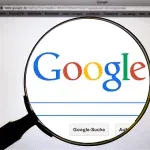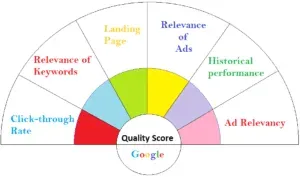How Familiar Are You With Google Pay Per Click Advertising?
 Before we get into Google Pay Per Click Advertising, what is pay per click advertising? Pay per click advertising is an efficient method to get extremely relevant leads. While search engine optimization allows you to rank organically, you are paying to get your ad to the top. Like its name, with pay per click advertising, you are paying for each click on your ad. Pay per click advertising gets you much more relevant leads than search engine optimization. It’s often that your prospective customers are in the last stages of their buying journey. Your customer has his or her wallet in hand and ready to buy. As such, you and your competitors are looking to nab that customer. With Google being such a powerful and most used search engine, Google pay per click advertising is an efficient campaign to implement in your digital marketing strategy.
Before we get into Google Pay Per Click Advertising, what is pay per click advertising? Pay per click advertising is an efficient method to get extremely relevant leads. While search engine optimization allows you to rank organically, you are paying to get your ad to the top. Like its name, with pay per click advertising, you are paying for each click on your ad. Pay per click advertising gets you much more relevant leads than search engine optimization. It’s often that your prospective customers are in the last stages of their buying journey. Your customer has his or her wallet in hand and ready to buy. As such, you and your competitors are looking to nab that customer. With Google being such a powerful and most used search engine, Google pay per click advertising is an efficient campaign to implement in your digital marketing strategy.
Not Sure About Any of This? Click Here to Learn More About Pay Per Click
Google AdWords
 How can advertisers almost conquer Google? With Google pay per click advertising, you are enabling the use of Google AdWords. AdWords is Google’s PPC advertising platform and its main source of income. In AdWords, advertisers are bidding on keywords they want to trigger their sponsored ads. However, Google AdWords pricing and bids are not the only factor Google looks at. Google displays ads on each user’s maximum bid and their quality score. These two factors combined determine which ad gets placed where. By understanding quality score, you will gain an enormous advantage over your competitors and influence over cost and effectiveness of your Google pay per click advertising campaigns.
How can advertisers almost conquer Google? With Google pay per click advertising, you are enabling the use of Google AdWords. AdWords is Google’s PPC advertising platform and its main source of income. In AdWords, advertisers are bidding on keywords they want to trigger their sponsored ads. However, Google AdWords pricing and bids are not the only factor Google looks at. Google displays ads on each user’s maximum bid and their quality score. These two factors combined determine which ad gets placed where. By understanding quality score, you will gain an enormous advantage over your competitors and influence over cost and effectiveness of your Google pay per click advertising campaigns.
Understand Your Quality Score
What is a quality score? How does it affect your PPC campaign? Your quality score is Google’s rating of the quality and relevance of both your PPC and keywords campaigns. The biggest metrics that are affected by your quality score is impressions, ad position, and cost-per-click. Quality scores are determined by a number of factors:
- Your Click Through Rate (CTR)
- Landing Page Quality & Relevance
- Relevance of Ad Text
- Relevance of each keyword to its ad group
- Historical AdWords account performance
It is not known how much weight Google assigns to these factors. However, click through rates are the most important determinant. Very simply, the more people click on your ad, it’s a strong indication to Google that it’s helpful and appropriate. As such, Google will award your ad with higher ad ranking and lower costs.
The more important characteristic of your quality score is that it correlates with a lower cost per conversion. Do not get this confused with cost per click. They are not the same. Cost per conversion is how much the advertiser pays when someone takes the action they want them to take. Cost per click is simply paying for a click on your ad. Just because a prospective customer clicks on your ad, this action may not be the primary action you want them to take. As such, cost per conversion is generally higher than a cost per click. The higher your quality score, the lower your cost per conversion.
is how much the advertiser pays when someone takes the action they want them to take. Cost per click is simply paying for a click on your ad. Just because a prospective customer clicks on your ad, this action may not be the primary action you want them to take. As such, cost per conversion is generally higher than a cost per click. The higher your quality score, the lower your cost per conversion.
Increasing your quality score can be difficult. However, there are several key areas you can focus on to make the job less tedious. First, are you doing proper keyword research? Always be checking on new keywords you can rank for. By discovering new and highly relevant keywords to add to your campaigns, this will be extremely beneficial to building relevant traffic. Anyone can do keyword research but not everyone knows how to pick which keyword to rank for. Keywords can be separated into short and long-tailed keywords. With long-tailed keywords, customers are looking for something very specific and are further into their buying journey than searching generally. This is one out of multiple characteristics of keywords to keep in mind.
 Second, keyword organization is important. By segregating your keywords into appropriate sections, these groups can be tied more effectively to individual ad campaigns. This prevents campaigns from getting mixed together when they shouldn’t be. Third, refine your ad text. More effective ads get higher CTR. Fourth, optimize your landing pages. There are a variety of landing pages you can construct. As such, each has their own unique characteristics to optimize its function. By following the best practices tailored to each kind of landing page, customers will have a better cohesive experience.
Second, keyword organization is important. By segregating your keywords into appropriate sections, these groups can be tied more effectively to individual ad campaigns. This prevents campaigns from getting mixed together when they shouldn’t be. Third, refine your ad text. More effective ads get higher CTR. Fourth, optimize your landing pages. There are a variety of landing pages you can construct. As such, each has their own unique characteristics to optimize its function. By following the best practices tailored to each kind of landing page, customers will have a better cohesive experience.
Quality score has an immense impact on premium positioning. What is premium positioning? Premium positioning is the highlighted region above the search results that are extremely valuable to advertisers. These ads are positioned at the very top of the page and are usually always in high quality. How can your ad appear above these search results? These ads must meet a certain threshold. This threshold cannot be bought by raising bids. This is another compelling incentive for advertisers to improve the quality of their ads.
Should You Choose Google Pay Per Click Advertising?
Google AdWords can be difficult and time-consuming. It’s an effective method that, when done properly, can reap valuable benefits. As such, do not be discouraged to use Google pay per click advertising. Sometimes, it is best to consult a professional who is AdWords certified and experienced. A well seasoned PPC Consultant will be up-to-date with recent changes, know how to use extended text ads correctly, and will help build a strategy that makes sense. Because AdWords is a complex platform to thoroughly understand, there is an exam that companies should have their employees go through when consulting clients. Another incentive to jump into Google AdWords is how your ad can be shown locally or globally. You can tweak your ads if you’re finding that campaigns are not meeting standards or are failing to compete. Google AdWords usually requires a lot of experimentation which may be risky to some businesses, especially smaller businesses with a small marketing budget.
Whether or not you choose to use Google Pay per click advertising is ultimately up to you! You can also advertise on LinkedIn to leverage your reach and use different online campaign strategies. While you may not be thoroughly thinking about Google Adwords at the moment, do not completely disregard it. As your business grows, it is likely you’ll be needing pay per click campaigns. Starting with Google AdWords is never a bad idea. It’s an extremely large search engine that when used properly will get you great results locally and globally.